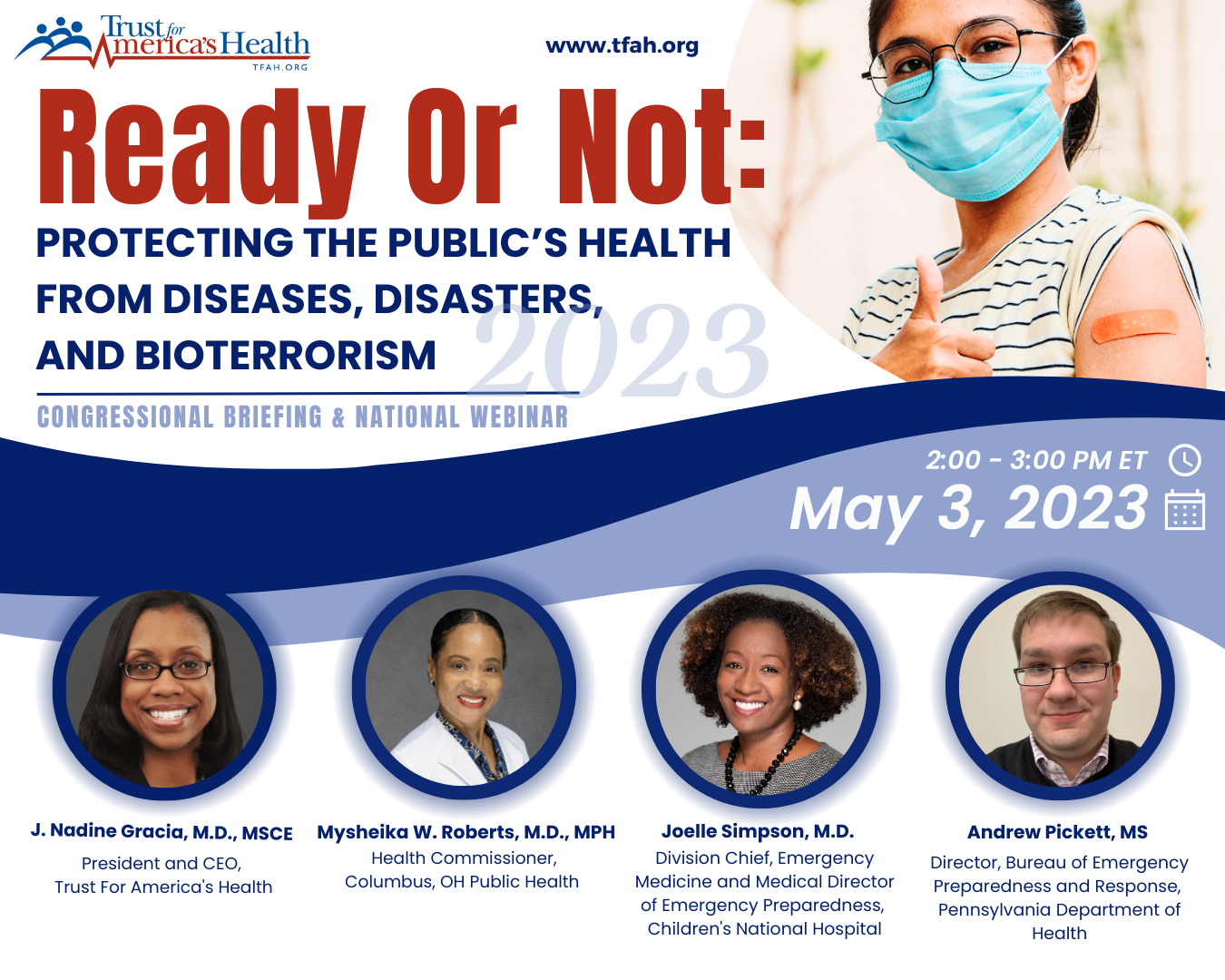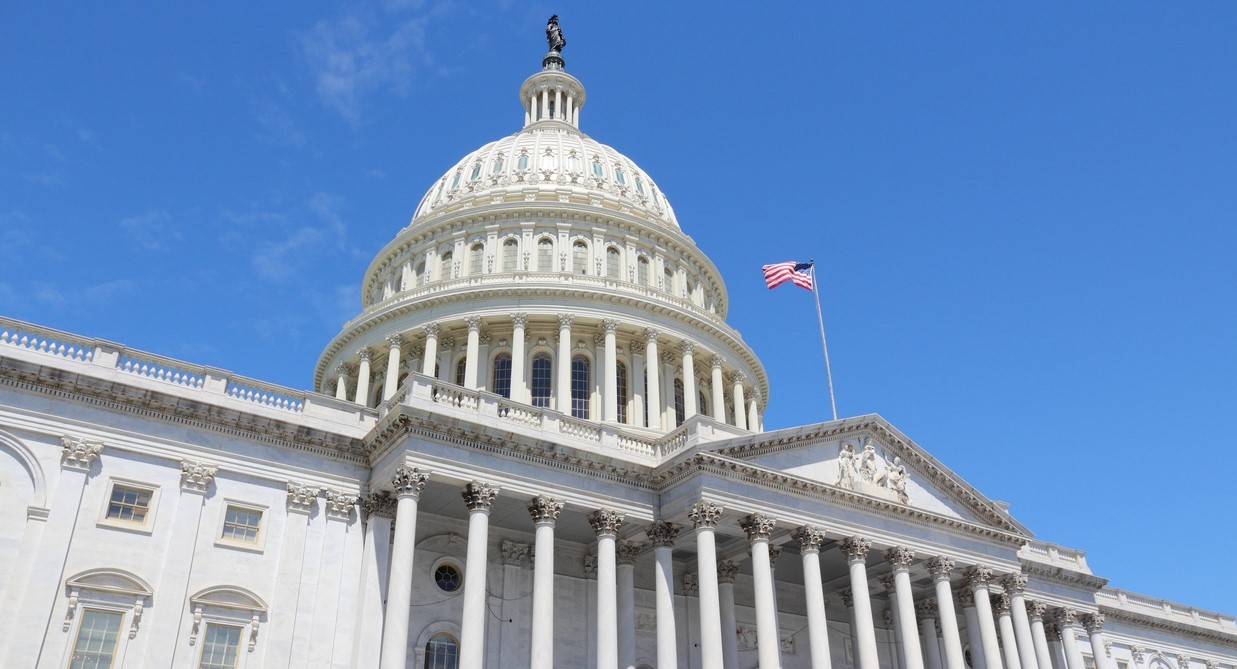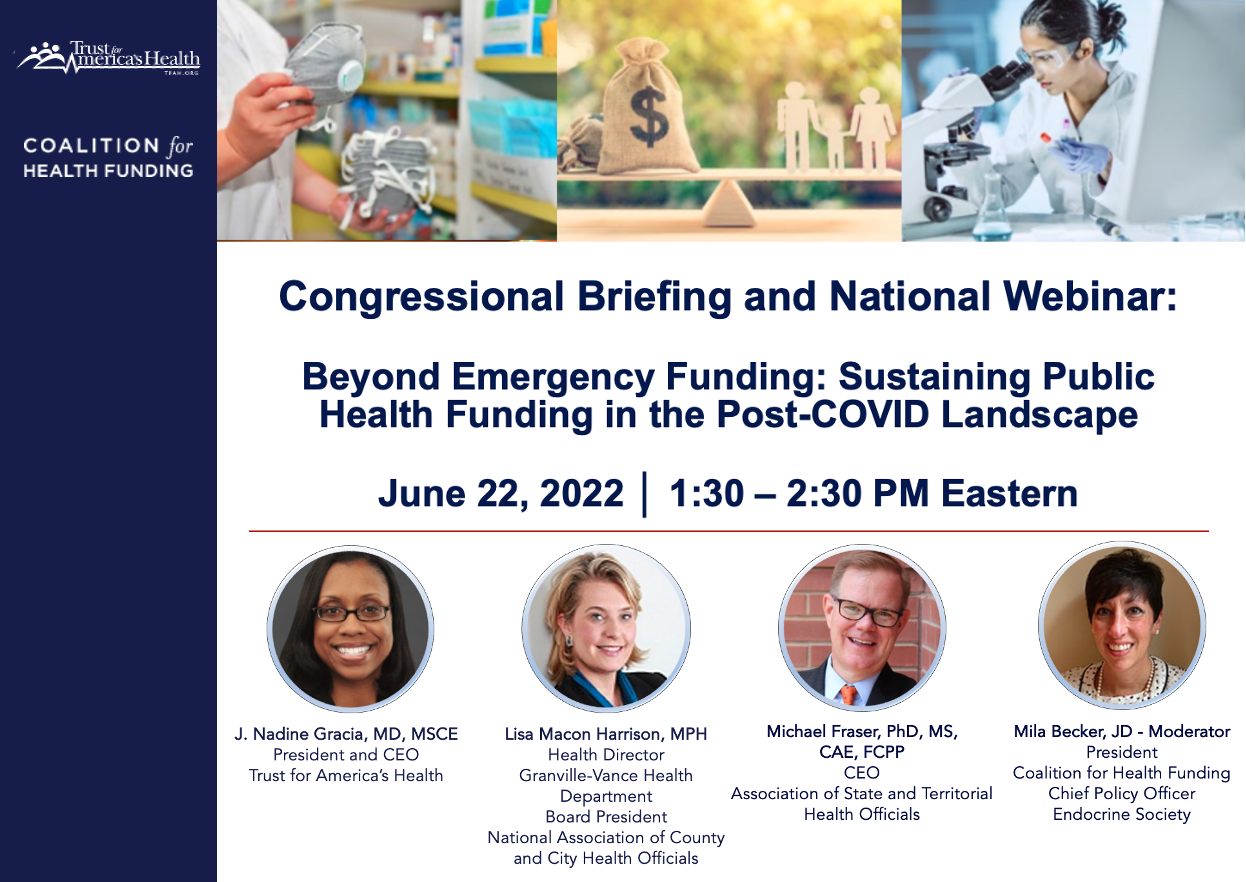Los Fondos de Emergencia del COVID-19 fue una respuesta fundamental desde un principio, pero no lo suficiente efectiva para atender el problema que viene acarreando el país debido a la falta de inversión en la salud pública; Se necesitan $ 4.5 mil millones en fondos anuales
(Washington, DC – 28 de julio del 2022) – La insuficiencia crónica de fondos ha creado un sistema de salud pública que no logra cubrir las necesidades de seguridad de salud de la nación, las persistentes desigualdades en la salud, así como las amenazas emergentes, y fue uno de los factores que contribuyó a la respuesta inadecuada a la pandemia de COVID-19, según un informe, The Impact of Chronic Underfunding on America’s Public Health System: Trends, Risks, and Recommendations, 2022, publicado hoy por Trust for America’s Health.
“El financiamiento de emergencia es importante pero no suficiente para llenar los vacíos de larga data en las inversiones en salud pública. El ciclo de ‘auge y caída’ de la financiación de la salud pública demuestra que el sistema no tiene las herramientas o la fuerza laboral para modernizarse y responder a las diversas amenazas que afectan a nuestras comunidades”, dijo J. Nadine Gracia, M.D., MSCE, presidente y directora ejecutiva de Trust for America’s Health.
Este informe anual examina las tendencias de financiación de la salud pública a nivel federal, estatal y local, recomendando inversiones y acciones políticas para construir un sistema de salud pública más fuerte, dándole prioridad a la prevención, abordando temas como las desigualdades sociales y económicas las cuales crean barreras para lograr un buen sistema de salud en muchas comunidades.
La falta de fondos para programas básicos de salud pública desaceleró la respuesta a la pandemia de COVID-19 y exacerbó su impacto, particularmente en las comunidades de bajos ingresos, comunidades de color y en los estadounidenses de avanzada edad los cuales son las poblaciones que representan las tasas más altas de enfermedades crónicas y tienen menos recursos para recuperarse de una emergencia. TFAH es una de las numerosas organizaciones dentro de la comunidad de salud pública que solicita una inversión anual de $4500 millones en infraestructura de salud pública a nivel estatal, local, tribus y territorial.
“A medida que atravesamos nuevas etapas de la pandemia vemos más allá, y se observa que la necesidad fundamental es que se modernice la infraestructura de datos de salud pública, que aumentemos y diversifiquemos la fuerza laboral de salud pública, que se invierta en programas de prevención y promoción de la salud, reduciendo las desigualdades en el sector de la salud. Las inversiones en salud pública son necesarias en todas las comunidades, pero deben dirigirse particularmente a aquellas comunidades que, debido a los impactos del racismo estructural, la pobreza, la discriminación sistémica y la desinversión, se encuentran en mayor riesgo durante una emergencia de salud”, dijo el Dr. Gracia.
El fondo de emergencia no es suficiente para atender las debilidades del sistema creadas por la falta de financiación crónica
Las agencias de salud pública estatales y locales manejaron dos realidades divergentes durante el 2021. La financiación a corto plazo aumentó significativamente ya que el gobierno federal proporcionó fondos de emergencia en respuesta a los estados y localidades en esfuerzo para controlar la pandemia. Pero esta financiación de dinero se realizó sola vez, y en algunos casos específicamente vinculado al COVID-19. Gran parte de este fondo de emergencia no pudo ser utilizada para abordar los déficits de larga data en el sistema de salud pública, los cuales incluían asegurar provisiones para cubrir los gastos básicos de salud pública, sustituir los sistemas desactualizados de datos y aumentar la fuerza laboral de salud pública. Un análisis de octubre del 2021 realizado por la Fundación de Beaumont y el Centro Nacional de Innovaciones de Salud Pública encontró que los departamentos estatales y locales de salud necesitan un aumento del 80 por ciento en el campo de su fuerza laboral para poder brindar servicios integrales de salud pública a sus comunidades.
Otro desafío para los departamentos de salud a nivel estatal y local es que los fondos de emergencias, si bien es una gran ayuda durante la emergencia, es demasiado tarde para trabajar en un plan de preparación y prevención, ya que estos programas deben implementarse antes de una emergencia para proteger vidas. Para estar adecuadamente preparado para la próxima emergencia de salud pública, la nación debe mantener los niveles de fondos más altos respecto a la salud pública y proveer una financiación flexible.
Los fondos de dos programas clave de preparación y respuesta de emergencias se han visto drásticamente reducidos en las últimas dos décadas:
- Los Centros para el Control y la Prevención de Enfermedades (CDC) de EE. UU. son la principal agencia de salud pública del país y la principal fuente de financiación para los departamentos de salud estatales, locales, tribales y territoriales. La financiación anual de los CDC para los programas de preparación para emergencias de salud pública (PHEP, por sus siglas en inglés) aumentó ligeramente entre el año fiscal 2021 y el año fiscal 2022, de $840 millones a $862 millones, pero ha reducido un poco más de una quinta parte desde el año fiscal 2002, ó aproximadamente a la mitad cuando se ajusta por inflación.
- El Programa de Preparación Hospitalaria, administrado por la Oficina del Subsecretario de Preparación y Respuesta del Departamento de Salud y Servicios Humanos de EE. UU., es la fuente principal de financiamiento federal para ayudar a los sistemas de atención médica a prepararse para emergencias. El programa ha sufrido una reducción de casi dos tercios en las últimas dos décadas cuando se ajusta a la inflación.
Los fondos para la promoción de la salud, la prevención y la equidad también necesita un crecimiento sostenido
Como nación, gastamos $4,1 billones en salud en 2020, pero solo el 5,4 % de ese gasto se destinó a la salud pública y la prevención. Notablemente, casi se duplicó la cifra del año pasado en comparación con el 2019. Esto se debe a la respuesta de fondos implementados a corto plazo en respuesta al COVID-19. Sin embargo, esta cifra sigue siendo insuficiente y muy probable que regrese a los niveles en los que se encontraba antes de la pandemia, si el patrón histórico de aumento de fondos para la salud pública aumenta durante otra emergencia, volveremos a estar en la misma situación. La financiación inadecuada significa que los programas efectivos de salud pública, como aquellos para prevenir el suicidio, la obesidad y las amenazas ambientales para la salud, solo llegan a una fracción de los estados. Esta negligencia de larga data contribuye a las altas tasas de enfermedades crónicas y a las persistentes desigualdades en el ámbito de la salud.
“Debemos romper el patrón de invertir solo en el sistema de salud pública durante una emergencia, ya que no permite trabajar en la preparación y prevención. Es muy importante invertir en salud pública y equidad sanitaria de manera continua, incluso en tiempos que no sean de emergencia, para lograr salvar vidas, reduciendo los costos económicos para nuestra nación durante y entre emergencias”, dijo la Dra. Gracia.
Los impactos del racismo estructural, la pobreza, la discriminación y la desinversión son temas que deben de igual manera abordarse mediante inversiones a través de programas que aseguren que cada comunidad tenga acceso a alimentos saludables, vivienda segura, atención médica, transporte, educación y empleo, ya que todos estos factores afectan la salud de las personas.
Recomendaciones para tomar medidas de acción:
El informe exige la adopción de medidas de acción por parte de la administración, el Congreso y funcionarios tanto estatales como locales en cuatro áreas:
Aumentar sustancialmente los fondos básicos para fortalecer la infraestructura de salud pública y desarrollar su fuerza laboral, incluyendo el aumento de la asignación básica de los CDC y la modernización de los sistemas de seguimiento de enfermedades y datos de salud pública de la nación.
Invertir en la seguridad de la salud de la nación, aumentando los fondos de salud pública para la preparación de emergencias de sanidad, mejorando la infraestructura de inmunización y tomando en cuenta los impactos del cambio climático.
Abordar las desigualdades de la salud y su impacto como causas principal de enfermedades abordando los factores sociales de la salud que tienen un impacto descomunal en temas de salud pública.
Proteger y mejorar la salud a través del tiempo en vida. Muchos programas que promuevan la salud y prevengan las principales causas de enfermedad, discapacidad y muerte se han descuidado durante mucho tiempo, además de no estar disponibles en todos los estados ni a las poblaciones que se encuentran en mayor riesgo. Es de vital importancia, activar los programas que frenan las enfermedades crónicas, apoyar a niños y familias para prevenir el uso indebido de sustancias y colocar como máxima prioridad el suicidio.
Lea el reporte completo en: The Impact of Chronic Underfunding on America’s Public Health System: Trends, Risks, and Recommendations, 2022
Trust for America’s Health es una organización no partidista sin fines de lucro que promueve la salud óptima para cada persona y comunidad a través de la acción política y trabaja para hacer de la prevención de enfermedades y lesiones una prioridad nacional.



